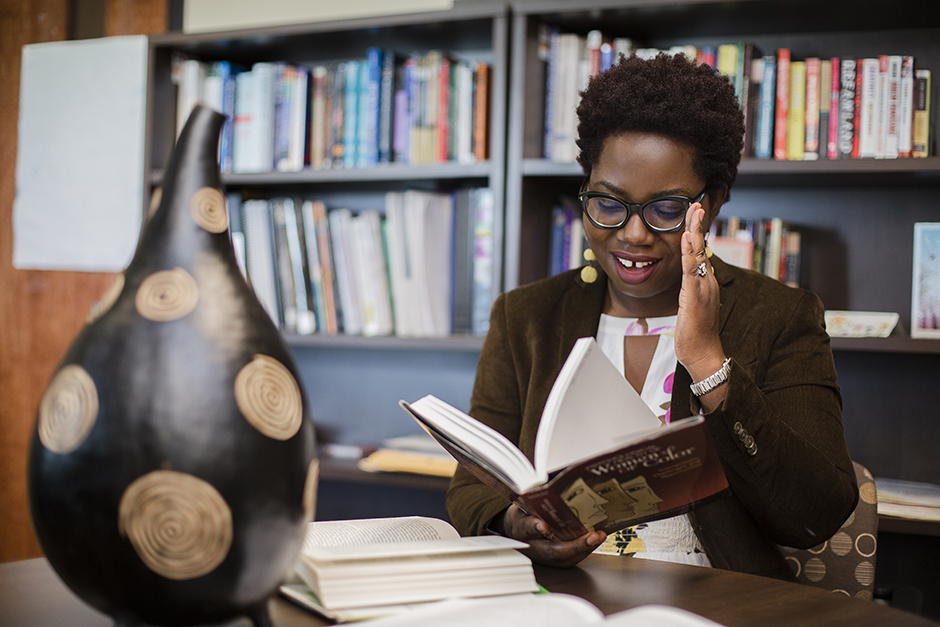Assistant Professor of Psychology Sannisha Dale is eager to get to work on her latest endeavor, Project MMAGIC. Developed with community engagement components and interdisciplinary collaborations across the University of Miami, Dale says Project MMAGIC (Monitoring Microaggressions and Adversities to Generate Interventions for Change) is a very special initiative, “it’s quite unique.”
In just two years at the University of Miami, Dale has made her mark. She is the director of the SHINE Research Program (Strengthening Health through Innovation and Engagement), scientific director for Community Engagement for the new Center for HIV and Research in Mental Health (CHARM), and founding chair of the Diversity and Equity Committee in the Department of Psychology.
Prior to joining the College of Arts & Sciences, Dale was an assistant in psychology in Behavioral Medicine at the Massachusetts General Hospital and an instructor in psychology at Harvard Medical School. Her research delves into methods of understanding the relationships between resilience, trauma, and health outcomes among individuals with HIV and researching the psychosocial and structural factors that relate to health disparities. Her goal, with help from community members and stakeholders, is to create proper prevention and intervention tactics that promote positive health outcomes.
“The concept of Project MMAGIC comes from other preliminary work that I’ve done in my career,” says Dale. “But here I’m thinking about the psychosocial stressors that Black women who are living with HIV face, and gaining a wider understanding of how these daily microaggressions, over time, can affect their health.”
Dale says microaggressions can include daily insults and behaviors that Black women living with HIV experience on the basis of their race, HIV status, gender, and sexual orientation, which can, according to Dale’s cross-sectional research, create barriers to proper health care, an increase in depression, or post-traumatic stress disorder (PTSD).
The objective of Project MMAGIC is to gather data to see how these microaggressions, and other related psychosocial experiences over time, relate to HIV viral suppression.
“The uniqueness of Project MMAGIC is that it will allow me to enroll Black women living with HIV in the Miami community, about 150 women in total who we will engage and gather data from over the course of a year or more,” says Dale. “During this time, we will collect information on the kinds of microaggressions they are experiencing on a daily basis.”
Dale hopes that the research collected through Project MMAGIC will continue to tear down assumptions regarding Black women living with HIV and highlight the role of social and structural issues impacting their lives.
The Project MMAGIC team is also collecting data related to violence and the reoccurrence of violence (such as physical and sexual assault) and analyzing how violence impact women’s engagement in care, such as frequencies to their medical appointments, medication adherence and, ultimately, how well they are doing in terms of HIV and wellness.
“We are also going to look at resilience factors, such as self-efficacy, spirituality, coping mechanisms, as well as environmental factors like where Black women with HIV live and the resources that are available in their communities, such as domestic violence shelters, health centers, and transportation access,” adds Dale.
Project MMAGIC is being funded through a $670,000 grant from the National Institute of Mental Health. The project also includes an interdisciplinary team of experts from the University of Miami: Assistant Professor Ian Wright at the Business School, Professor Dan Feaster and Associate Professor Maria Alcaide at the Miller School of Medicine, and Professor Steven Safren and Professor Gail Ironson in the Department of Psychology at the College of Arts & Sciences.

